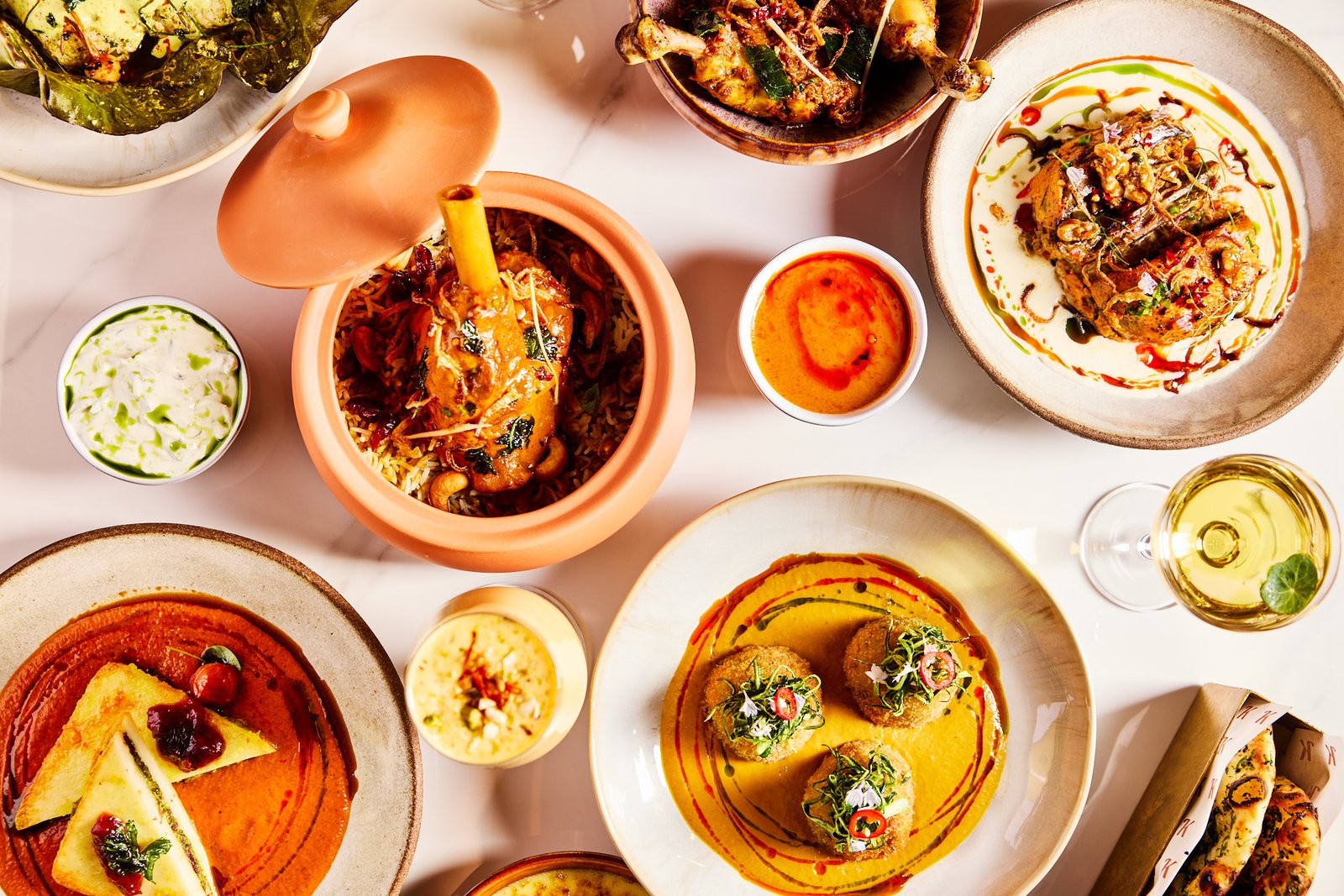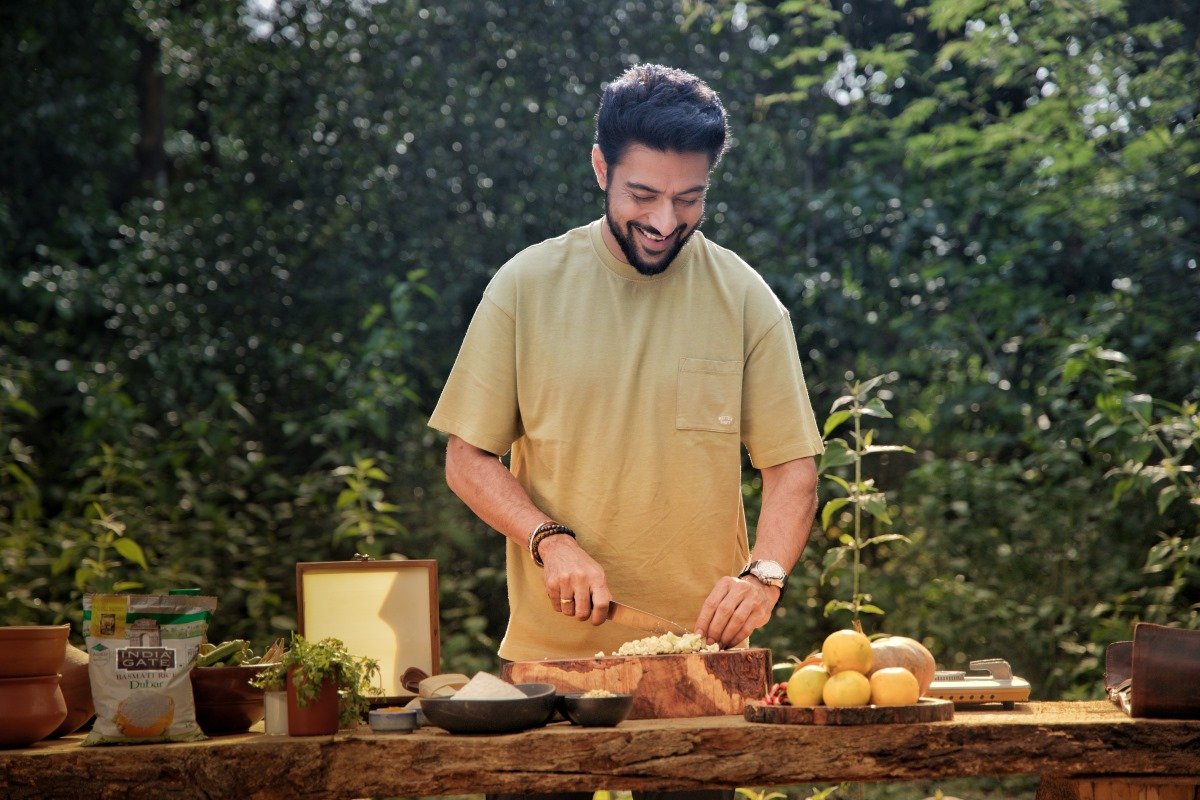A Culinary Love Letter to Indian Home Cooking Opens in the East Bay
The Bay Area’s dynamic culinary landscape welcomes its newest gem as acclaimed chefs Sujan and Pujan Sarkar officially opened KHAKI, a modern Indian bar and canteen in San Ramon on August 1, 2025. This highly anticipated venture represents a deeply personal journey for the brothers, who have crafted a menu that celebrates the everyday flavors of India through the lens of California’s seasonal bounty.
KHAKI isn’t just another Indian restaurant—it’s a thoughtfully curated experience that bridges nostalgia and innovation, offering diners a genuine taste of the brothers’ culinary heritage reimagined for contemporary palates. For industry professionals and food enthusiasts alike, this opening signals an exciting evolution in regional Indian cuisine that merits close attention.
Culinary Visionaries: The Sarkar Brothers’ Journey
With over 22 years of combined culinary experience, the Sarkar brothers bring exceptional credentials to their latest venture. Chef Sujan Sarkar has earned international recognition for elevating Indian cuisine to new heights on the global stage. His approach blends traditional techniques with progressive culinary methods, resulting in dishes that honor their roots while embracing modern sensibilities.
“At KHAKI, you can expect food that is both surprising and comforting, deeply spiced, vegetable-forward and thoughtfully balanced,” explains Chef Sujan Sarkar. “From the fiery punch of Andhra-style chili chicken to the coastal depth of Mangalorean beef sukka, each dish speaks to a specific region in India. We move east with the Shyambazar mutton cutlet from Kolkata, slow down in Bihar with our rustic, garlic-forward, clay-pot Champaran mutton inspired by Akash’s childhood, and then head north for the iconic butter chicken. This isn’t just a menu, it’s a lived experience.”
Chef Pujan Sarkar’s expertise in regional Indian techniques provides the culinary foundation for KHAKI’s kitchen. His deep understanding of traditional cooking methods ensures authenticity while allowing for creative interpretation. “Our food is all about taking you on a journey through India’s incredible variety of flavors,” notes Chef Pujan. “We try to strike that sweet spot between traditional, nostalgic tastes and a more modern, thoughtful approach. It’s the kind of food that feels comforting and familiar, but with a fresh twist that’s made for how people actually want to eat today.”
The brothers’ partnership with Akash Kapoor, the hospitality veteran and CEO of Curry Up Now, brings additional expertise to the table. This collaboration represents a fusion of culinary vision and operational excellence that positions KHAKI for success in the competitive Bay Area dining market.
Beyond Butter Chicken: KHAKI’s Menu Philosophy
What distinguishes KHAKI from other Indian restaurants is its focus on the everyday foods that truly define India’s diverse culinary landscape. Rather than limiting their menu to predictable restaurant standards, the Sarkar brothers have chosen to highlight dishes inspired by street-side chaat, railway-station kababs, and slow-cooked home curries—the authentic flavors that Indians themselves cherish.
Signature dishes reveal the personal connections behind KHAKI’s menu. The Jackfruit Cutlet pays homage to Kolkata’s street-side vegetable patties, a formative childhood favorite of the Sarkar brothers. Meanwhile, the Beef Sukka channels Chef Pujan’s recent travels through coastal Karnataka, delivering a dry-roasted, deeply regional, and unmistakably comforting dish that few Bay Area restaurants have showcased.
The vegetable-forward approach aligns perfectly with California’s ingredient-driven ethos while honoring India’s rich tradition of plant-based cooking. Seasonal produce from local farms finds new expression through traditional Indian spice combinations and cooking techniques, creating dishes that feel simultaneously innovative and familiar.
For industry watchers, KHAKI’s menu demonstrates how authenticity and innovation can coexist harmoniously. By focusing on regional specificity rather than generic “Indian food,” the restaurant educates diners while delivering memorable flavor experiences. This approach represents a growing trend in ethnic cuisine, where chefs are increasingly confident in presenting more nuanced interpretations of their culinary heritage.
Cocktail Culture Meets Indian Inspiration
KHAKI’s beverage program extends the restaurant’s creative vision into the glass, featuring cocktails that tell their own stories of Indian regional flavors. The bar showcases Indian gins—a category experiencing remarkable global growth—alongside house-made spice infusions and pickled elements that echo the kitchen’s approach.
Cocktail garnishes featuring toasted mustard seeds and chili salt provide sensory connections to the food menu while introducing drinkers to new flavor profiles. For industry professionals, KHAKI’s bar program offers valuable insights into how cultural authenticity can be thoughtfully translated into innovative beverage offerings that complement and enhance the dining experience.
The integration of traditional Indian drinking culture with contemporary mixology techniques creates signature beverages that stand as culinary achievements in their own right. This approach demonstrates how restaurants can develop comprehensive sensory experiences where food and drink share a cohesive narrative.
Design That Whispers Rather Than Shouts
Working with Kolkata-based studio Curryfwd, the Sarkar brothers have created a space that reflects their culinary philosophy through thoughtful design. Inspired by the color and texture of khaki itself, the restaurant blends California’s clean modernism with India’s quiet textures—not through obvious motifs, but through subtle patterns, weaves, and finishes.
“It’s a canteen reimagined: grounded in utility, softened by nostalgia, and brought to life through a cross-cultural lens,” explains the design team. This approach reflects a sophisticated understanding of how restaurant environments can enhance dining experiences without resorting to cultural clichés or overwhelming aesthetics.
The minimalist, warm atmosphere provides a fitting backdrop for the vibrant flavors on the plate. For restaurant designers and operators, KHAKI offers valuable lessons in creating spaces that communicate cultural authenticity while remaining contemporary and approachable.
The Future of Regional Indian Cuisine in America
KHAKI’s opening comes at a pivotal moment for Indian cuisine in America. As diners become increasingly knowledgeable about regional specificity in global cuisines, restaurants like KHAKI are well-positioned to lead conversations about India’s diverse culinary traditions.
The Sarkar brothers’ approach represents a growing confidence among chefs to move beyond generalized presentations of ethnic cuisines and instead highlight the distinct regional variations that make their culinary heritage so rich. For food professionals, KHAKI demonstrates how personal narrative and technical excellence can combine to create dining experiences that are both educational and emotionally resonant.
The restaurant’s location in San Ramon, rather than more established culinary destinations like San Francisco or Oakland, also signals the expanding geography of exceptional dining in the Bay Area. As the region’s dining scene continues to decentralize, suburban locations like San Ramon are increasingly attracting top culinary talent and concepts.
Experience KHAKI for Yourself
KHAKI is now open at 6000 Bollinger Canyon Road in San Ramon. The restaurant offers both dine-in and takeout options, with reservations recommended for evening service. Industry professionals interested in exploring the Sarkar brothers’ culinary vision can find additional information and make reservations at wearekhaki.com or follow their journey on Instagram @khaki.sanramon.
For those seeking to understand the evolution of modern Indian cuisine in America, KHAKI provides a compelling case study in how personal narrative, regional specificity, and technical excellence can combine to create dining experiences that honor tradition while embracing innovation.
Have you experienced regional Indian cuisine beyond the standard restaurant fare? Share your thoughts and discoveries in the comments below about how restaurants like KHAKI are reshaping perceptions of Indian food in America.
Written by Michael Politz, Author of Guide to Restaurant Success: The Proven Process for Starting Any Restaurant Business From Scratch to Success (ISBN: 978-1-119-66896-1), Founder of Food & Beverage Magazine, the leading online magazine and resource in the industry. Designer of the Bluetooth logo and recognized in Entrepreneur Magazine’s “Top 40 Under 40” for founding American Wholesale Floral. Politz is also the founder of the Proof Awards and the CPG Awards and a partner in numerous consumer brands across the food and beverage sector.
























You must be logged in to post a comment Login